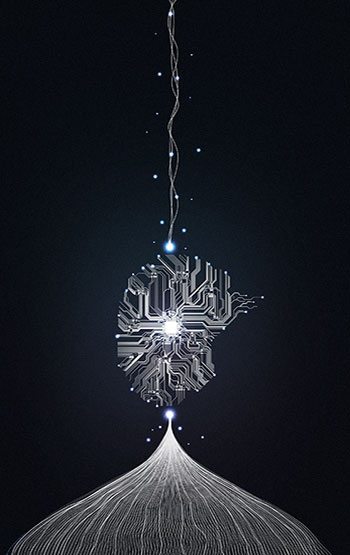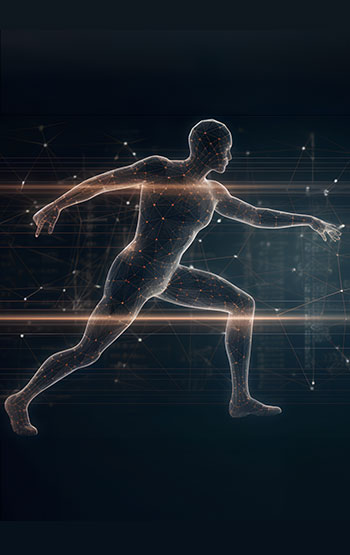
M. Sc. Oliver Werthwein
- ESS/ Research Associate
- Group: Prof. Stork
- Phone: +49 721 9654-759
- werthwein ∂does-not-exist.fzi de
- www.fzi.de/team/oliver-werthwein/
Forschungszentrum Informatik (FZI)
Haid- und Neu-Str. 10 - 14
76131 Karlsruhe

Machine learning
Machine learning is a subfield of artificial intelligence (AI) that deals with the development of algorithms and models that allow computers to learn from data and make predictions or decisions without being explicitly programmed. It is based on the idea that computers can learn from experience and adapt to perform specific tasks. The core of machine learning is to recognize patterns and structures in existing data and then apply these patterns to new, unknown data to make predictions or decisions. At FZI, we are developing and investigating these methods in areas such as image and speech recognition, medical diagnosis, robotics, and more.

Artificial intelligence and computer vision
The use of artificial intelligence (AI) and image processing in medical technology opens up a wide range of possibilities for improving the diagnosis, treatment and monitoring of diseases. These technologies use various sensors and analysis methods to detect and interpret patterns and structures in medical data or images. This enables faster and more accurate analysis, which in turn helps physicians and medical staff make more informed decisions. However, the application of AI and image processing in medical technology also brings challenges. A key challenge is ensuring that these technologies work reliably and accurately, especially given the complex environments in which medical images are generated and the often limited amount of data available for training AI models. At FZI, we are continuously working on innovative technologies and on systematic analyses of concrete use cases to improve the performance and efficiency of these systems.

Human Action Recognition
In the field of Human Action Recognition (HAR), artificial intelligence (AI) is increasingly being used alongside conventional signal processing methods. When developing AI systems for HAR, careful consideration must be given to both the selection of appropriate AI algorithms and the selection of AI hardware, as HAR systems are diverse in their design. A key challenge is to capture human actions realistically through measurements. Here, high-resolution measurement of appropriate features plays a key role. This can include, for example, analyzing the human pose in space using computer vision to analyze the movements and positions of the body and infer the activity being performed. At FZI, we are researching and developing new technologies from the fields of AI, image processing and sensor technology which opens up more precise and automated recognition of human activity, in areas such as healthcare, fitness, surveillance and robotics.
| Title | Type | Starting date |
|---|---|---|
| Action recognition on video data using pose estimation | Masterarbeit | ab 04 / 2024 |

